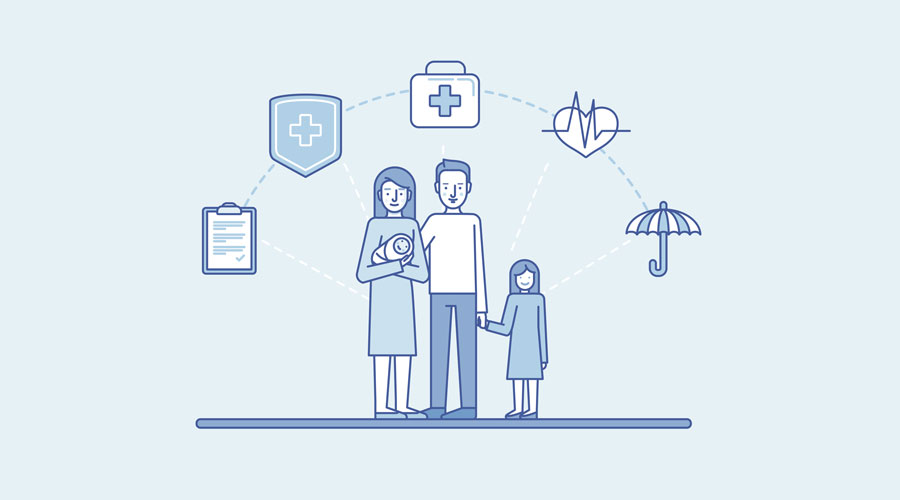Imagine lying numb under a surgeon’s scalpel and hearing the word, “oops.”
There’s probably nothing you’d want to hear less. And you’d definitely find another surgeon.
Healthcare professionals’ choice of words have a significant effect on patients.
Especially at your pharmacy.
Patients often come into your pharmacy apprehensive, struggling, or embarrassed about their medical condition or symptoms.
And they come to your independent community pharmacy expecting a special level of customer service that they can’t get anywhere else.
Make your customer service the reason patients keep coming back to your pharmacy. Avoid saying these 10 things patients never want to hear from their pharmacist.
1. “What’s your name?”
Would you believe someone cared about you if you’d met multiple times and they couldn’t remember your name?
Of course you should ask patients for their name the first time. But if they regularly visit your pharmacy, you shouldn’t have to ask.
Knowing a patient’s name shows that you care about them. That they mean more to you than a transaction.
It makes your pharmacy personal and distinguishes you from the national chain pharmacies.
But remembering names isn’t easy. Especially if you see hundreds of patients.
Give these memory tips a try:
- Repeat the name throughout a conversation
- Associate the name with something else
- Read the name for visual association
2. “It’ll be ready in 30 minutes.”
When it comes to their pharmacy, patients care about convenience more than anything else.
If they have to wait too long for their prescription, they’ll find another pharmacy.
Set a goal to have patient’s prescriptions ready when they arrive. You can improve your pharmacy’s workflow and try these time-saving techniques to minimize patients’ wait times.
3. “I don’t know.”
It’s okay to not have every answer. But never leave it at that.
If a patient asks a question about her prescription, take a moment to find the answer for her. Or, tell her you’ll contact her later with an answer.
If a customer shopping your front end asks where you keep the compression stockings, ask a staff member to guide the patient to the right place.
And, if someone else, like the patient’s physician, is better able to answer the question, direct the patient there.
4. “Oops.”
Okay, you probably don’t say the word “oops” to your patients.
But you may make mistakes that frustrate and endanger your patients. (And, you may say “oops” under your breath…).
Whether it’s dispensing the wrong number of pills, the wrong brand or the wrong drug completely, medications errors can harm and upset patients. And they do happen.
As you work to improve workflow and increase efficiency in your pharmacy, don’t sacrifice the quality controls required to prevent medication errors.
Use safeguards like double and triple checking each prescription before it gets to the patient. And consider investing in automation technology that double checks for you.
5. “We don’t have your medication in stock.”
Patients often need to pick up their prescription as soon as they leave the physician’s office.
If your pharmacy has to order their prescriptions, patients most likely won’t wait for them. Instead, they’ll transfer their prescriptions to the nearest CVS or Walgreens.
Keep a fully stocked inventory so you always have patients’ prescriptions when they need them.
If you don’t have an item in stock, offer to rush mail it directly to the patient’s home free of fees. That level of customer commitment may be enough to keep their future prescriptions at your pharmacy.
6. “Are you sure you want to switch to generic?”
It’s true that your pharmacy benefits more from selling brand-name drugs than generics.
But your pharmacy benefits more from patient loyalty.
If you second guess a patient who wants to switch to generic, you erode their trust in you.
When you make patients aware of more affordable generic options, you build their trust in you.
You can also build trust by informing patients when they can save money by paying with cash instead of insurance.
Prioritize your patients’ pocketbooks over yours. It will pay off in the long run.
7. “You should really [unsolicited advice].”
Many patients seek health advice from their pharmacist.
When patients seek counsel, use your expertise to advise them. After all, you’re an important source of health information for patients.
But some patients don’t want advice.
Many patients picking up a prescription just came from their physician’s office where they heard a long list of health and lifestyle recommendations. (And probably from their family, too.)
They don’t want one more well-meaning person to tell them what they “should be doing.”
Don’t give patients lifestyle or health advise if they don’t ask for it.
8. “We can’t refill your prescription.”
As you know, sometimes patients want to refill a recurring prescription that hasn’t been renewed by the prescriber.
When patients show up to your pharmacy to pick up a recurring prescription, the last thing they want to hear is that you can’t refill it.
If you notice a patient’s prescription is due for a refill soon, take the proactive step of calling their prescriber for approval. Don’t simply tell the patient that his prescription is expired and leave him to figure it out.
The extra effort will save patients a lot of frustration. And it’ll make them appreciate your pharmacy.
9. “How are you managing [medical condition]? Or, how are your [symptoms]?”
Patients tell stories about their ex-pharmacist who named their embarrassing medical symptoms (or even the medical condition) at the counter when people were standing behind them.
It’s good to counsel patients about their condition and to follow up with them personally. But don’t do it with other people nearby.
(Not to mention it’s a violation of HIPAA).
That’s one reason to invest in a consultation room where you can speak privately with patients about sensitive issues.
10. “Your [prescription name] is ready.”
Patients never want to hear you say the name of their prescription out loud, even if you think there’s no one else around.
Announcing the name of the prescription can embarrass and infuriate patients.
This may seem obvious, but it happens in pharmacies and turns patients away forever.
If you need to explain the directions and contraindications that could give away sensitive information, do that away from the counter in your consultation area.
A Member-Owned Company Serving Independent Pharmacies
PBA Health is dedicated to helping independent pharmacies reach their full potential on the buy-side of their business. Founded and owned by pharmacists, PBA Health serves independent pharmacies with group purchasing services, wholesaler contract negotiations, proprietary purchasing tools, and more.
An HDA member, PBA Health operates its own NABP-accredited secondary wholesaler with more than 6,000 SKUs, including brands, generics, narcotics CII-CV, cold-storage products, and over-the-counter (OTC) products — offering the lowest prices in the secondary market.












